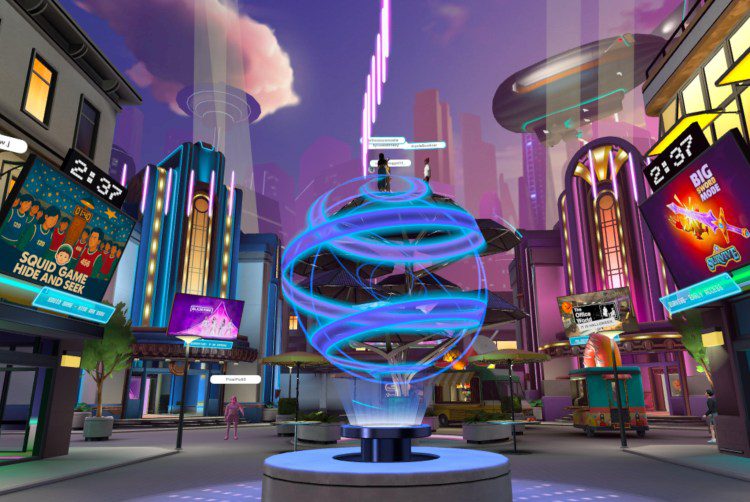
the ai industry is at a major The AI industry is facing significant challenges and opportunities as it navigates a pivotal moment in its evolution.
the ai industry is at a major
OpenAI’s DevDay: A New Era of AI Features
This week marked a notable event in the AI landscape with OpenAI hosting its annual DevDay in San Francisco. The company unveiled a series of new features for its flagship product, ChatGPT, along with innovative agent tools aimed at enhancing user experience. These announcements have sparked discussions about the future trajectory of AI technologies and their potential implications for various sectors.
During the event, OpenAI executives articulated a bold vision for the future of artificial intelligence. This vision emphasizes not only the technological advancements but also the ethical considerations that accompany such rapid progress. The company aims to position ChatGPT as a versatile tool that can integrate seamlessly into various applications, potentially transforming the way individuals and businesses interact with technology.
New Features and Tools
The new features introduced during DevDay include enhanced conversational capabilities, improved contextual understanding, and the introduction of plugins that allow developers to create applications that work within the ChatGPT ecosystem. This move is seen as a significant step towards making AI more accessible and user-friendly, allowing developers to leverage OpenAI’s technology for their own applications.
One of the standout announcements was the introduction of a new API that enables developers to build custom applications using ChatGPT’s capabilities. This API is expected to drive innovation across various industries, from customer service to content creation, as businesses look to integrate AI into their workflows.
The Rise of Sora: AI-Generated Video Takes Center Stage
In tandem with OpenAI’s announcements, the emergence of the Sora iOS app has thrust AI-generated video into the mainstream. This application has garnered attention for its ability to create high-quality video content using artificial intelligence, leading to a surge in user engagement and creativity. However, the rapid rise of Sora has also raised concerns about copyright issues and the ethical implications of AI-generated media.
OpenAI CEO Sam Altman expressed surprise at the unexpected popularity of Sora, which has led to a proliferation of memes featuring his likeness across social media platforms. This phenomenon highlights the unpredictable nature of AI technologies and their ability to capture public interest in ways that may not have been anticipated by their creators.
Implications of AI-Generated Media
The introduction of AI-generated video raises several important questions regarding ownership, authenticity, and the potential for misinformation. As users increasingly create and share content generated by AI, the lines between original and fabricated media become blurred. This situation poses challenges for content creators, consumers, and regulatory bodies alike.
Moreover, the rapid adoption of AI-generated video could have significant implications for industries such as entertainment, marketing, and education. As businesses explore new ways to engage audiences through AI-generated content, traditional models of content creation may need to adapt to accommodate these changes. This evolution could lead to new opportunities for innovation, but it also necessitates a careful examination of ethical considerations and potential risks.
AI in Job Screening: A Double-Edged Sword
Another noteworthy development in the AI landscape is the increasing prevalence of AI-powered job screening tools. A recent article in The New York Times highlighted how applicants are now attempting to “trick” automated job screening processes by embedding hidden messages within their resumes. This trend underscores the growing reliance on AI in recruitment and raises questions about the fairness and transparency of such systems.
As companies adopt AI-driven tools to streamline the hiring process, candidates are finding creative ways to navigate these automated systems. The practice of prompt-injecting resumes reflects a broader concern about the potential for bias and discrimination in AI algorithms. If not carefully monitored, these systems could inadvertently disadvantage certain groups of applicants, perpetuating existing inequalities in the job market.
The Role of AI in Recruitment
The use of AI in recruitment offers several advantages, including increased efficiency and the ability to analyze large volumes of applications quickly. However, it also presents challenges related to transparency and accountability. As organizations increasingly rely on AI to make hiring decisions, it becomes essential to ensure that these systems are designed to be fair and unbiased.
Stakeholders in the recruitment industry, including employers, job seekers, and policymakers, must engage in ongoing discussions about the ethical implications of AI in hiring. This dialogue should focus on establishing best practices for the development and deployment of AI tools, as well as ensuring that candidates are treated fairly throughout the hiring process.
The Future of AI: Open vs. Closed Systems
In light of these developments, the AI industry finds itself at a crossroads. Kanjun Qiu, CEO of AI startup Imbue, emphasizes that the future of AI could take one of two distinct paths: an open, user-centric model reminiscent of the early internet or a closed, walled garden approach similar to that of the social web. This dichotomy raises important questions about accessibility, innovation, and the role of users in shaping the future of AI technologies.
The Open Internet Vision
The open internet vision advocates for a decentralized approach to technology, where users have greater control over their data and the tools they use. This model encourages collaboration, innovation, and the democratization of technology, allowing individuals and organizations to build upon existing frameworks to create new solutions.
Supporters of this vision argue that an open AI ecosystem fosters creativity and enables diverse voices to contribute to the development of AI technologies. By prioritizing user-centric design and transparency, this approach can help mitigate concerns about bias and discrimination while promoting ethical practices in AI development.
The Walled Garden Approach
Conversely, the walled garden approach emphasizes control and exclusivity, often prioritizing profit over user empowerment. In this model, companies create closed ecosystems where users have limited access to data and tools, potentially stifling innovation and restricting competition. This approach raises concerns about monopolistic practices and the potential for abuse of power by dominant players in the AI space.
As the AI industry continues to evolve, the choices made by companies like OpenAI will have far-reaching implications for the future of technology. The decisions regarding openness, accessibility, and ethical considerations will shape the landscape of AI for years to come, influencing how individuals and organizations interact with these powerful tools.
Conclusion: Navigating the Crossroads
The developments in the AI industry this week highlight the complex interplay between innovation, ethics, and societal impact. As OpenAI and other companies navigate this pivotal moment, the choices they make will determine the trajectory of AI technologies and their implications for society.
With the rise of AI-generated content, the increasing reliance on AI in recruitment, and the ongoing debate about open versus closed systems, stakeholders across the industry must engage in thoughtful discussions about the future of AI. By prioritizing ethical considerations and user empowerment, the AI industry can work towards a future that benefits all.
Source: Original report
Was this helpful?
Last Modified: October 9, 2025 at 9:36 pm
0 views















